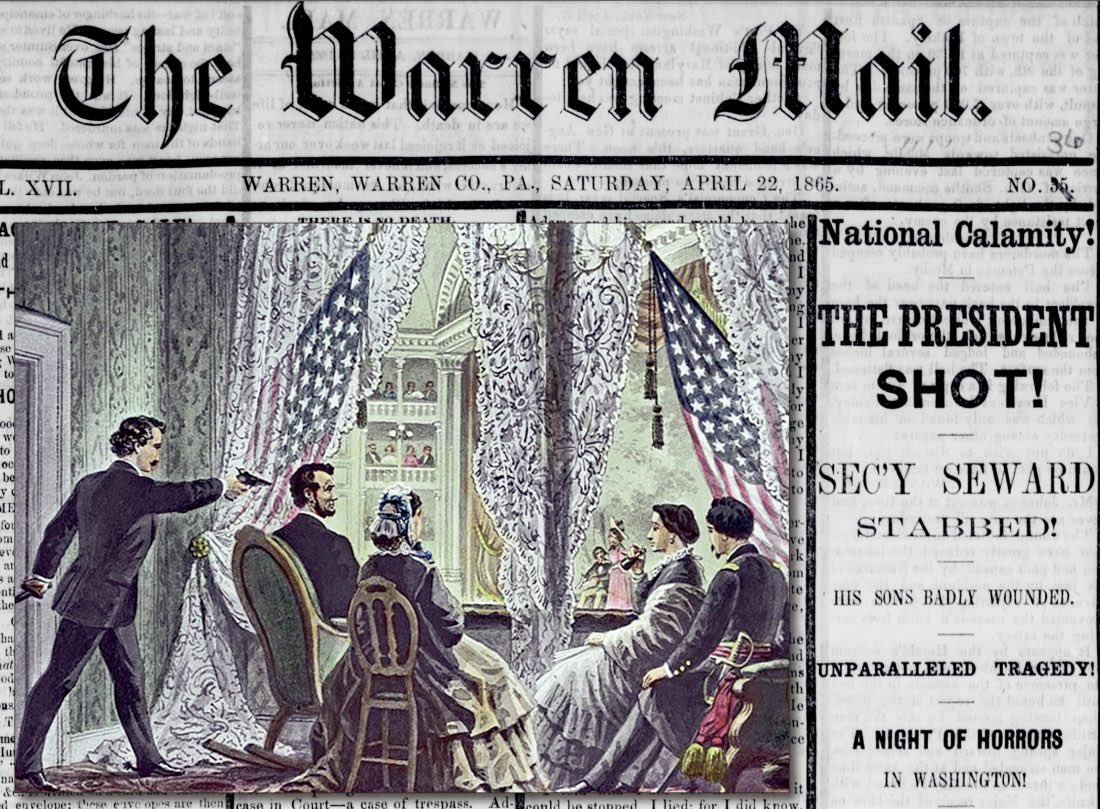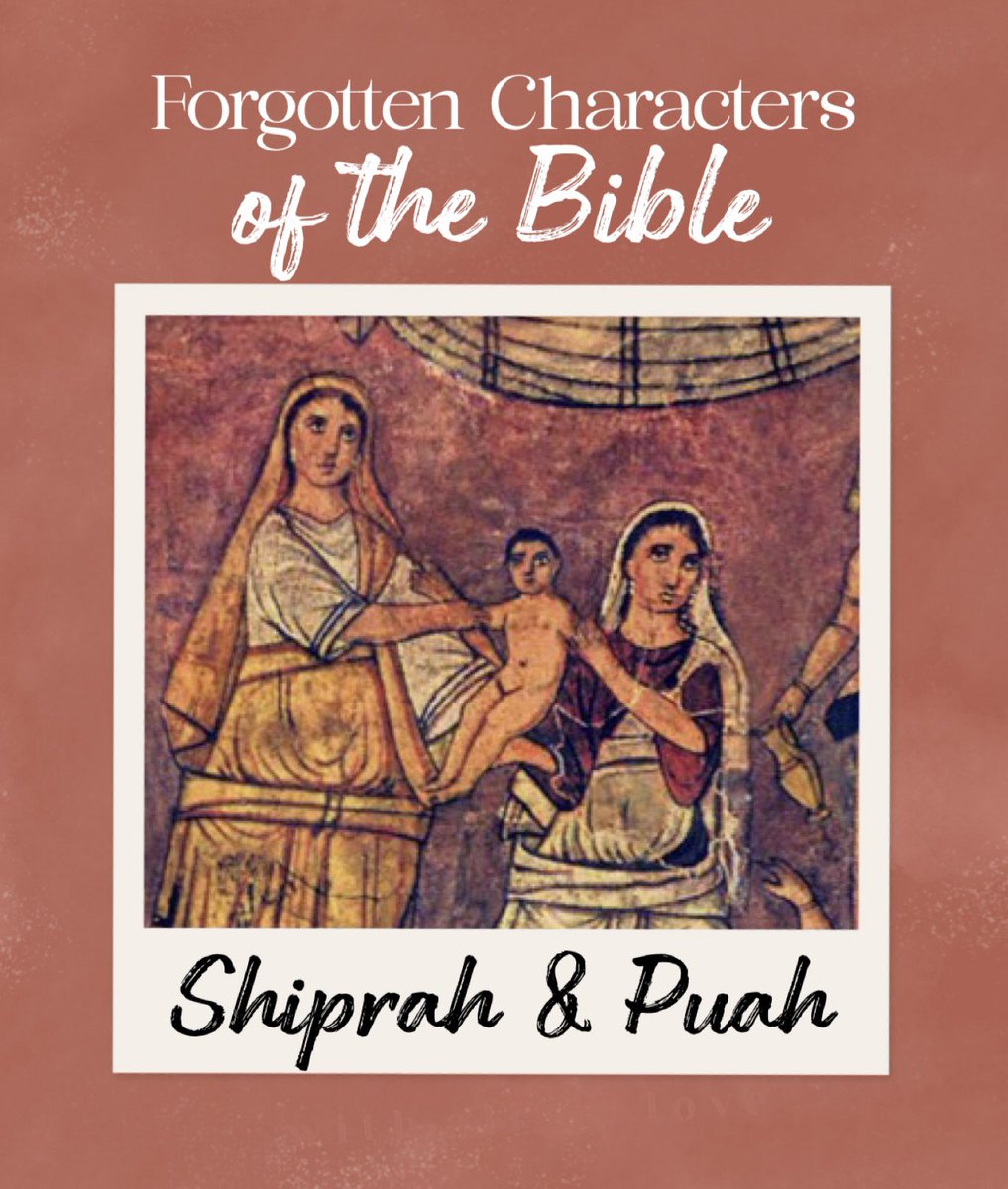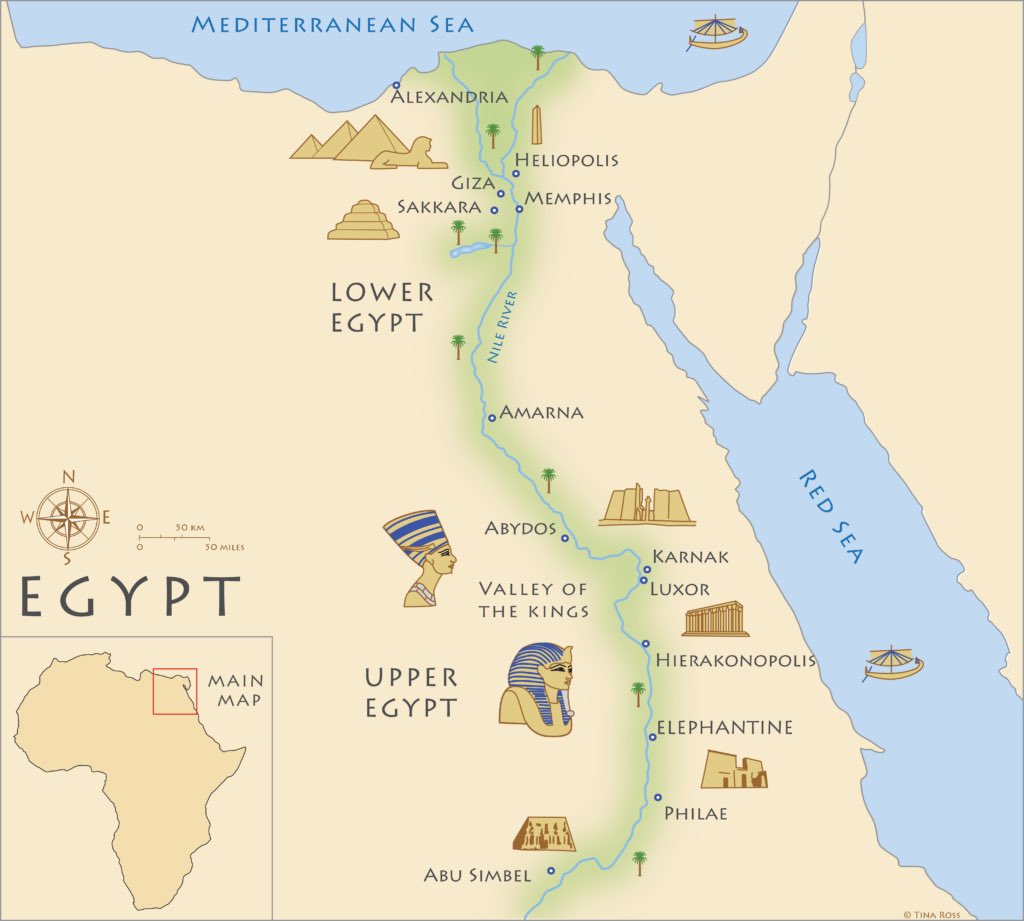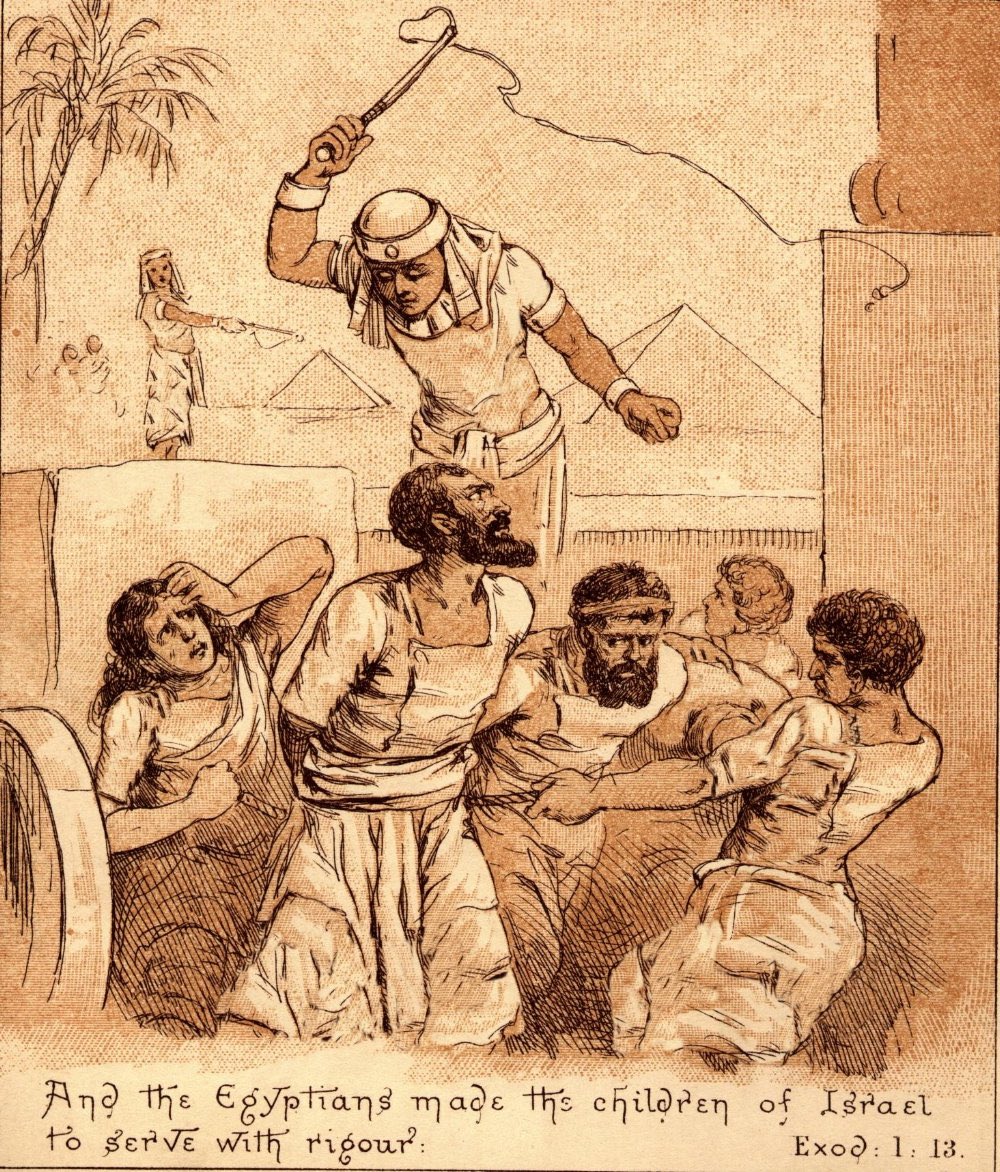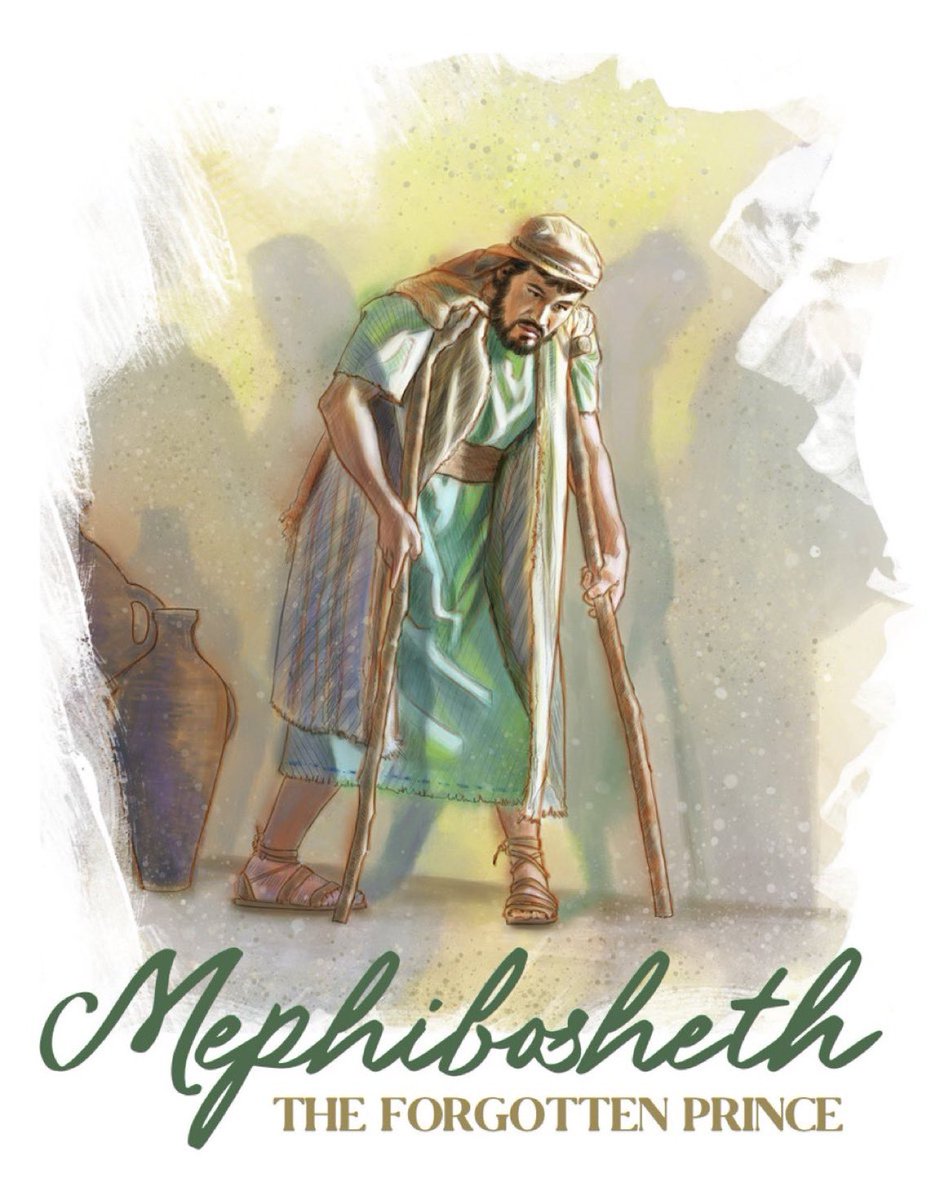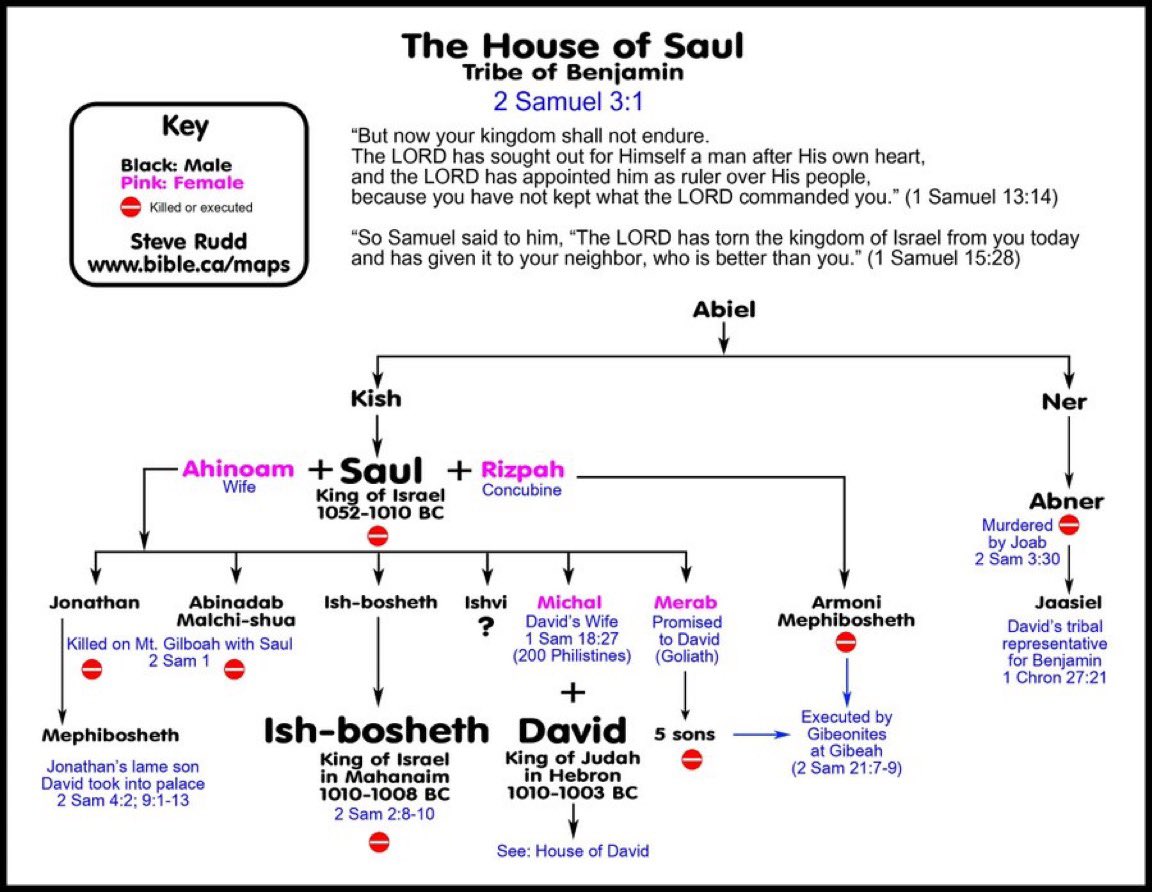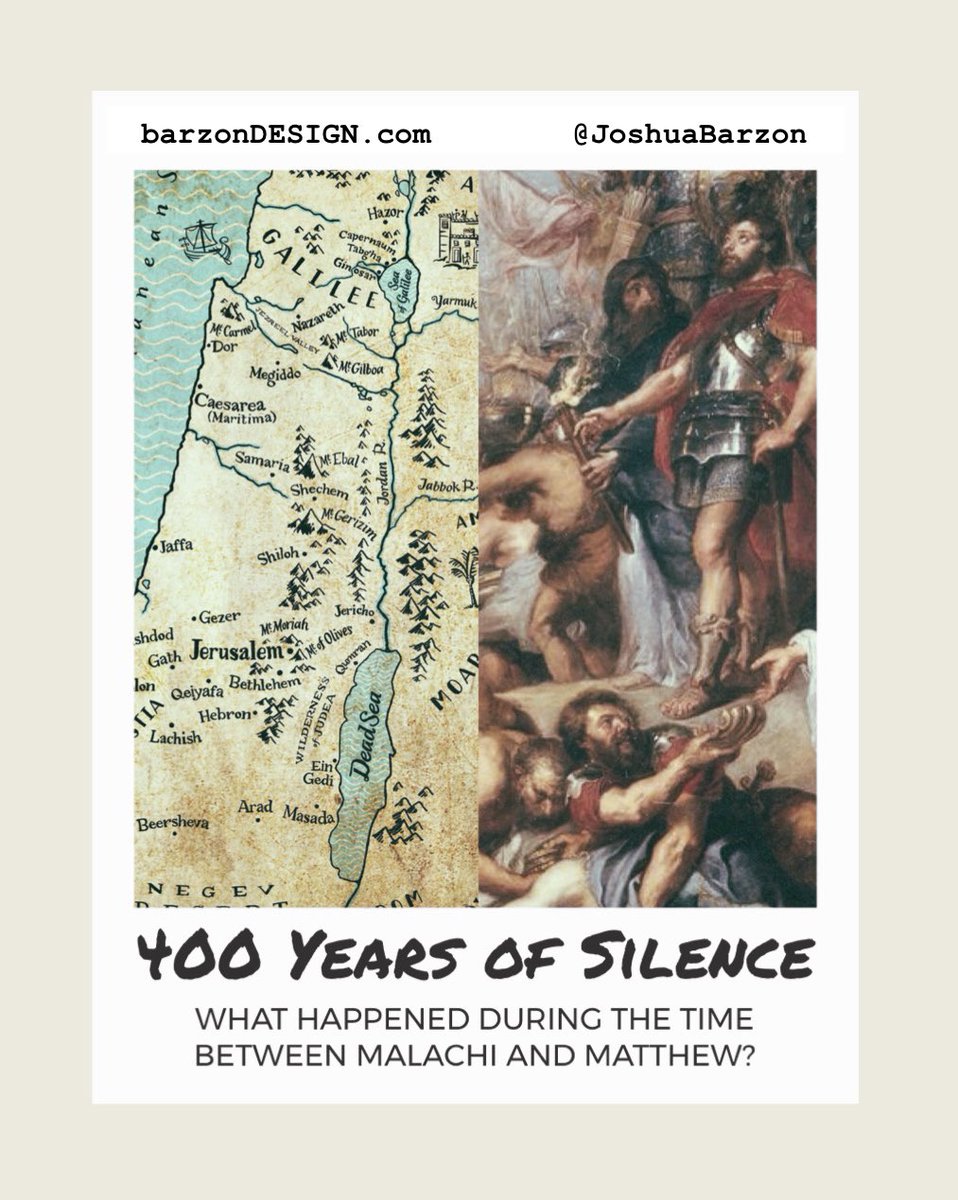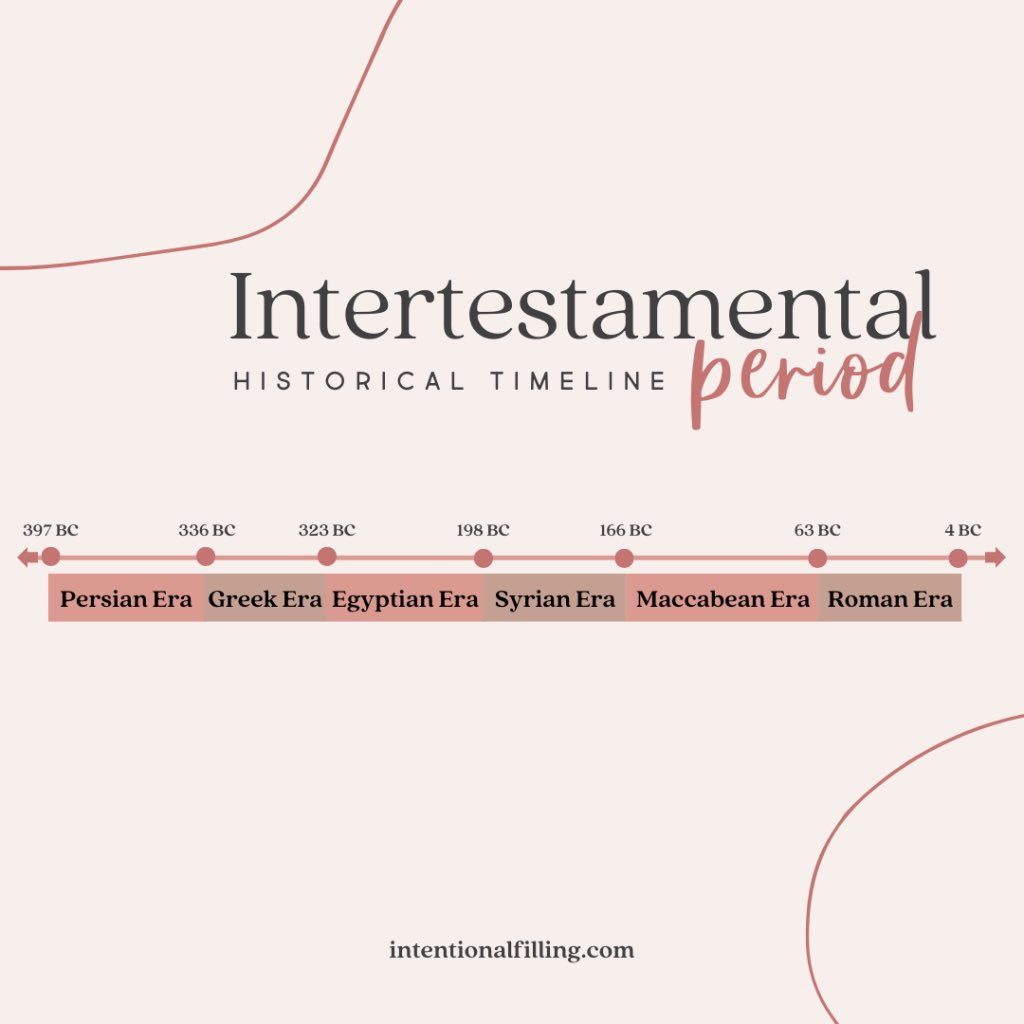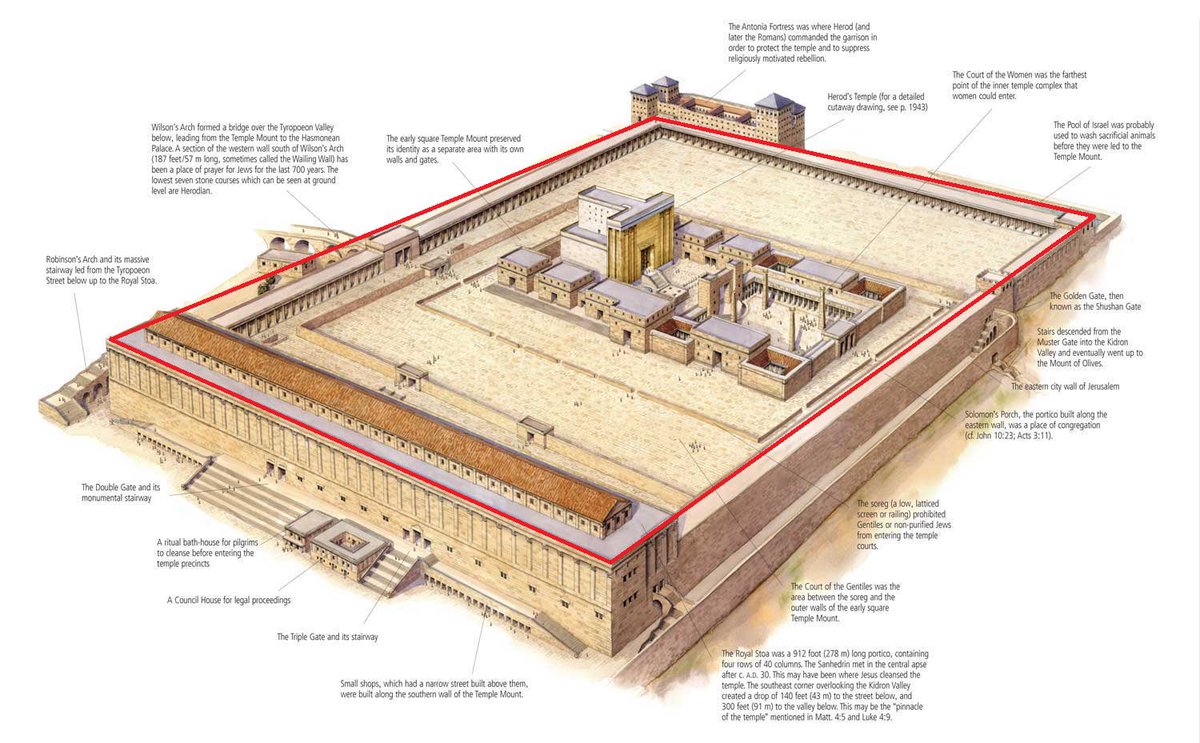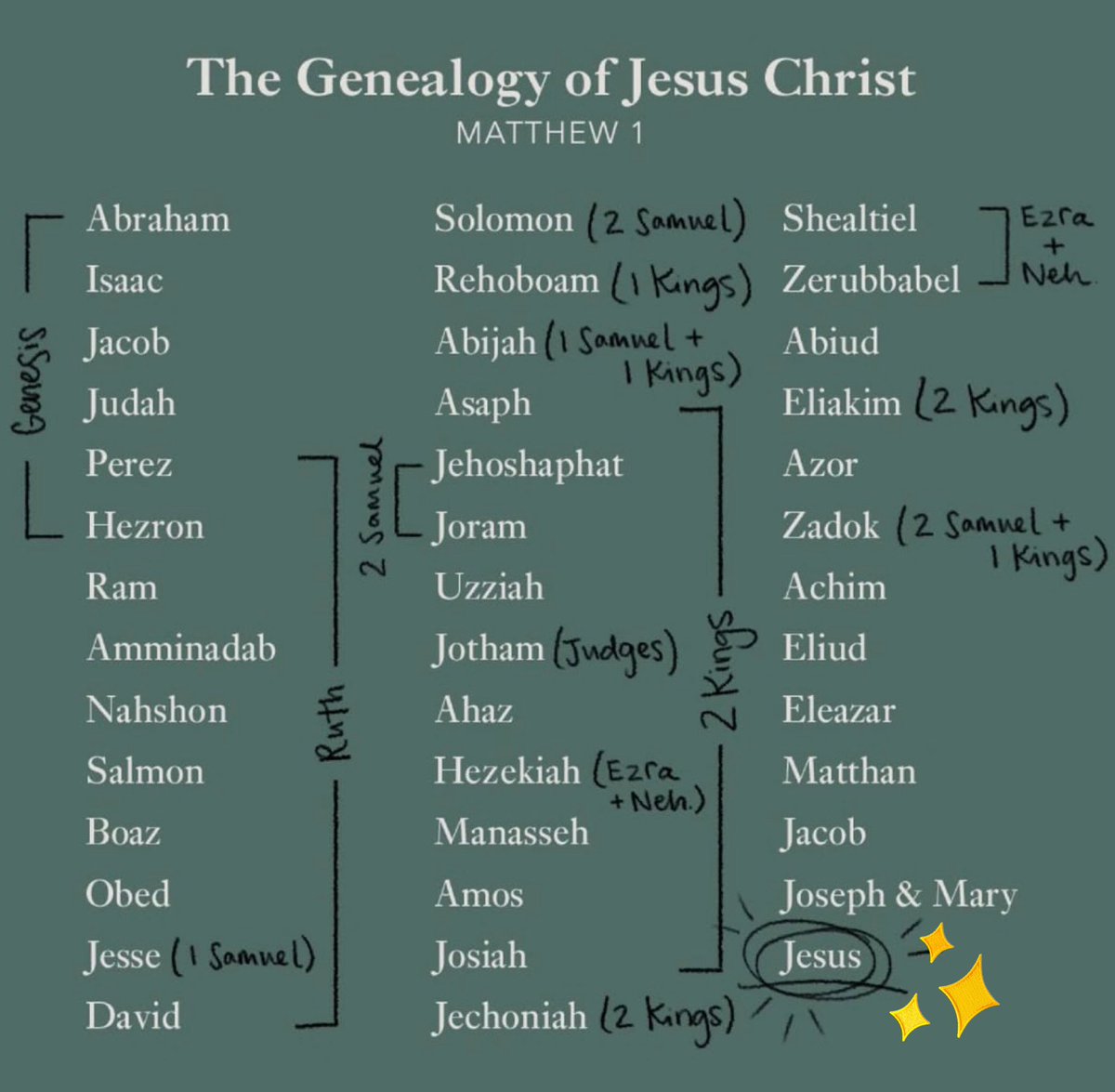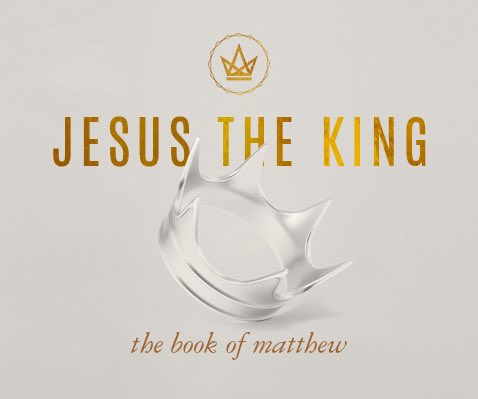🧵A Tale of Two Translations: The Story of the NASB & the LSB
✴️ 2 translations
✴️ 1 legacy
✴️ A shared origin but two distinct path
Scroll down for a fascinating 🧵 exploring how they rose together, diverged, & sparked fresh debates about the future of Bible translation
🧵👇🏼
✴️ 2 translations
✴️ 1 legacy
✴️ A shared origin but two distinct path
Scroll down for a fascinating 🧵 exploring how they rose together, diverged, & sparked fresh debates about the future of Bible translation
🧵👇🏼
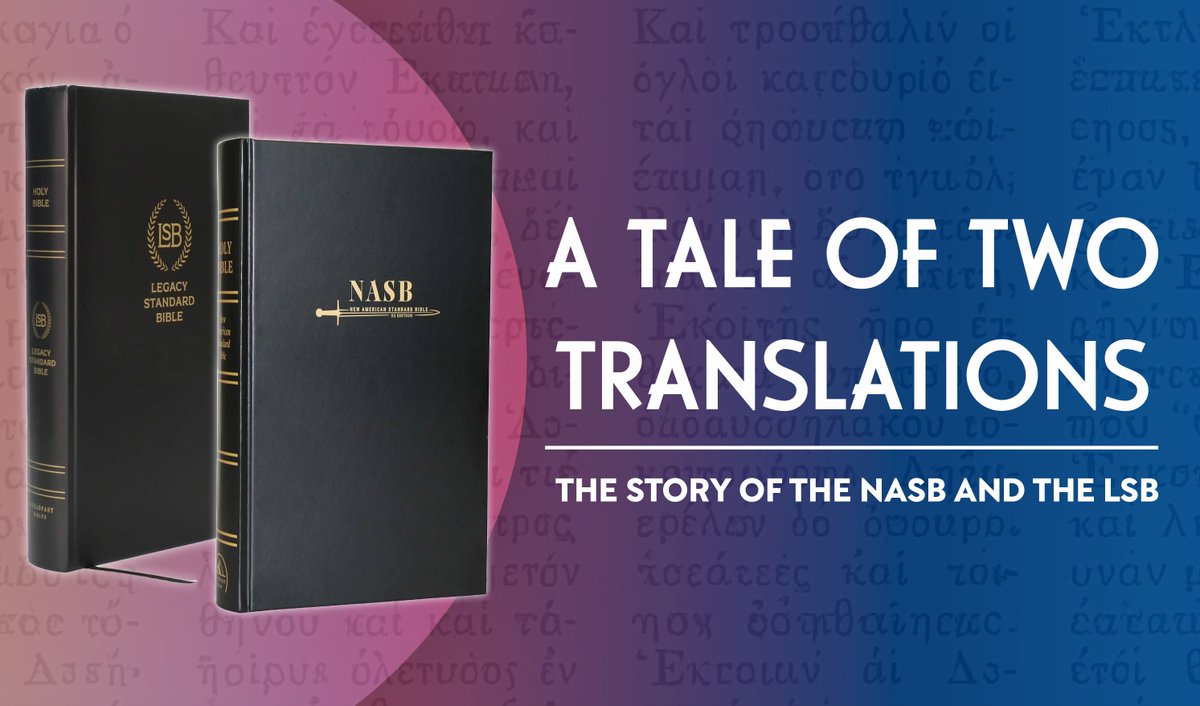
🧵 It all began in 1901 with the American Standard Version (ASV) 🇺🇸
Before the NASB or LSB were dreamed of, the ASV (1901) was produced as the American revision of the English Revised Version (1881).
Its defining traits:
▪️ Rigidly literal (even clunky at times)
▪️ Emphasis on original-language accuracy
▪️ Yahweh used in marginal notes
▪️ Strong influence in early 20th-century seminaries
It became the gold standard for word-for-word study Bibles—though not for casual reading.
Before the NASB or LSB were dreamed of, the ASV (1901) was produced as the American revision of the English Revised Version (1881).
Its defining traits:
▪️ Rigidly literal (even clunky at times)
▪️ Emphasis on original-language accuracy
▪️ Yahweh used in marginal notes
▪️ Strong influence in early 20th-century seminaries
It became the gold standard for word-for-word study Bibles—though not for casual reading.

🧵 The Lockman Foundation & the Birth of the NASB (1971) 📖
In the post-WWII era, American evangelicals wanted a modern, literal Bible in the spirit of the ASV… but easier to read.
Enter the Lockman Foundation: an independent, non-denominational ministry committed to Bible translation.
In 1971, they released the New American Standard Bible (NASB), aiming to:
✅ Preserve ASV accuracy
✅ Remove archaic phrasing
✅ Serve pastors, scholars, and serious readers
It was an ASV for a new generation.
In the post-WWII era, American evangelicals wanted a modern, literal Bible in the spirit of the ASV… but easier to read.
Enter the Lockman Foundation: an independent, non-denominational ministry committed to Bible translation.
In 1971, they released the New American Standard Bible (NASB), aiming to:
✅ Preserve ASV accuracy
✅ Remove archaic phrasing
✅ Serve pastors, scholars, and serious readers
It was an ASV for a new generation.

🧵 How the NASB Was Translated: Process & Philosophy 🤓
NASB translators approached the text with deep reverence and scholarly caution.
▪️ Based on the Biblia Hebraica Stuttgartensia (Hebrew OT)
▪️ Nestle-Aland Greek NT was primary for the New Testament
▪️ Committee of conservative scholars, mostly evangelical
▪️ Transparent footnotes showing alternate readings and manuscript data
Their method was strict formal equivalence, seeking to preserve even word order and grammar structure where possible.
This made it ideal for in-depth study… but occasionally awkward in style.
NASB translators approached the text with deep reverence and scholarly caution.
▪️ Based on the Biblia Hebraica Stuttgartensia (Hebrew OT)
▪️ Nestle-Aland Greek NT was primary for the New Testament
▪️ Committee of conservative scholars, mostly evangelical
▪️ Transparent footnotes showing alternate readings and manuscript data
Their method was strict formal equivalence, seeking to preserve even word order and grammar structure where possible.
This made it ideal for in-depth study… but occasionally awkward in style.

🧵 Praise & Pushback: Who Loved (and Hated) the NASB? ♥️ ❌
Who embraced it:
✅ Pastors focused on expository preaching (e.g., MacArthur, Sproul early on)
✅ Seminaries training Greek/Hebrew students
✅ Christians seeking a reliable, non-paraphrased Bible
Who rejected it:
❌ Advocates of more dynamic versions (e.g., NIV, NLT)
❌ KJV-only circles for its reliance on modern critical texts
❌ Casual readers, who found it too rigid or less poetic
Despite critique, it earned a reputation for precision and seriousness.
Who embraced it:
✅ Pastors focused on expository preaching (e.g., MacArthur, Sproul early on)
✅ Seminaries training Greek/Hebrew students
✅ Christians seeking a reliable, non-paraphrased Bible
Who rejected it:
❌ Advocates of more dynamic versions (e.g., NIV, NLT)
❌ KJV-only circles for its reliance on modern critical texts
❌ Casual readers, who found it too rigid or less poetic
Despite critique, it earned a reputation for precision and seriousness.
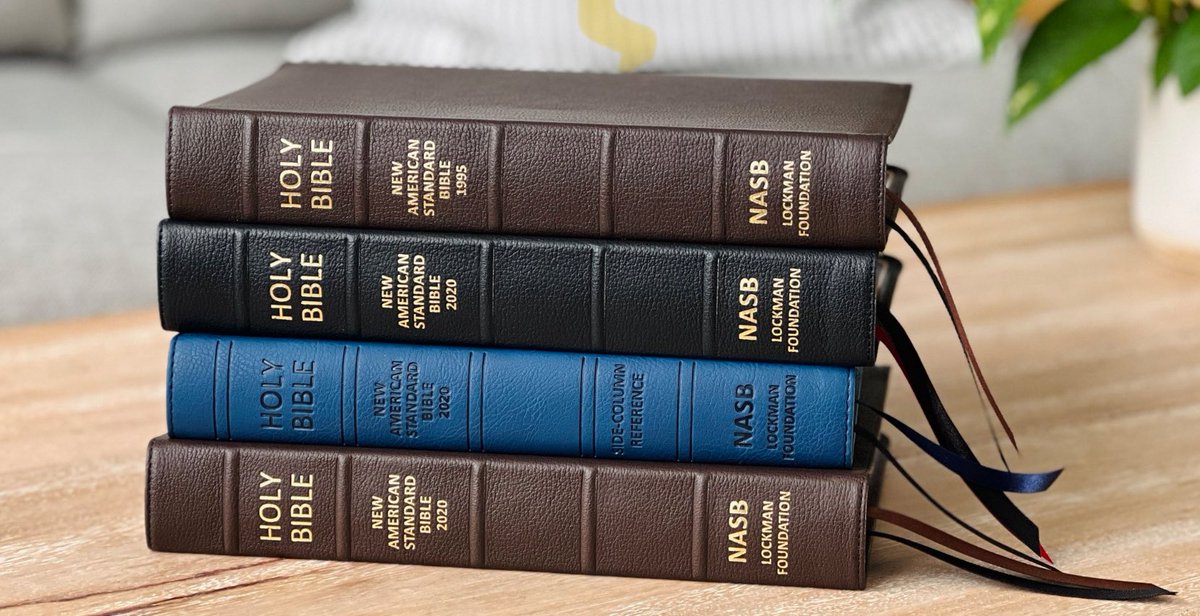
🧵 The NASB Matures: 1995 and 2020 Updates 📈
The NASB underwent two major revisions to stay relevant.
🗓 1995 Edition:
• Dropped archaic “Thee/Thou” even for God
• Smoothed rough edges while keeping formal equivalence
• Quickly became the default pulpit Bible for many
🗓 2020 Edition:
•Gender-accurate language added (e.g. “brothers and sisters” and led to some controversy)
• Modified sentence structure for readability
• Some evangelicals felt this blurred the NASB’s distinctiveness
It was this version that sparked conversations and set the stage for a fork in the road.
The NASB underwent two major revisions to stay relevant.
🗓 1995 Edition:
• Dropped archaic “Thee/Thou” even for God
• Smoothed rough edges while keeping formal equivalence
• Quickly became the default pulpit Bible for many
🗓 2020 Edition:
•Gender-accurate language added (e.g. “brothers and sisters” and led to some controversy)
• Modified sentence structure for readability
• Some evangelicals felt this blurred the NASB’s distinctiveness
It was this version that sparked conversations and set the stage for a fork in the road.
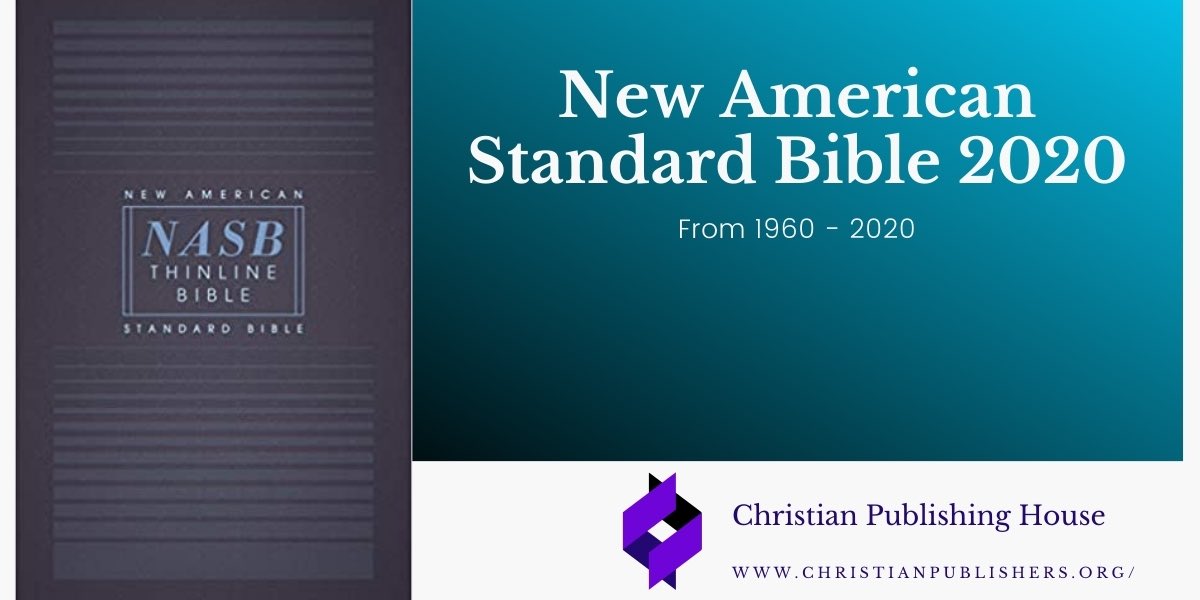
🧵 Enter the Legacy Standard Bible (LSB): 2021 📣
Some felt the 2020 NASB drifted from its roots. A new project emerged. Not initially intending to replace it, but to preserve its legacy.
🎓 The Legacy Standard Bible (LSB) was developed by The Master’s Seminary in partnership with Lockman and 316 Publishing.
Their goal:
🔒 Double down on literalism
🧱 Restore certain Hebrew and Greek terms to preserve theological weight
🗝 Return to the 1995 NASB… but with sharper accuracy
It was named “Legacy” not just for style, but to honor the NASB lineage.
Some felt the 2020 NASB drifted from its roots. A new project emerged. Not initially intending to replace it, but to preserve its legacy.
🎓 The Legacy Standard Bible (LSB) was developed by The Master’s Seminary in partnership with Lockman and 316 Publishing.
Their goal:
🔒 Double down on literalism
🧱 Restore certain Hebrew and Greek terms to preserve theological weight
🗝 Return to the 1995 NASB… but with sharper accuracy
It was named “Legacy” not just for style, but to honor the NASB lineage.
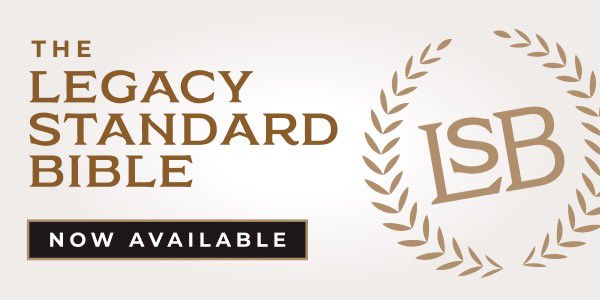
🧵What Makes the LSB Different?🧐
The LSB is not just a conservative reprint of the NASB. It goes further.
📝 Notable changes:
▪️ YHWH = “Yahweh” (not “LORD”) throughout the OT
▪️ Greek doulos = always “slave,” never softened to “servant”
▪️ Verbs reflect nuanced tense/aspect, especially in NT epistles
▪️ OT names standardized (e.g. Jacob instead of James in NT quotes)
The result: a Bible built for word-for-word study, not polished prose.
The LSB is not just a conservative reprint of the NASB. It goes further.
📝 Notable changes:
▪️ YHWH = “Yahweh” (not “LORD”) throughout the OT
▪️ Greek doulos = always “slave,” never softened to “servant”
▪️ Verbs reflect nuanced tense/aspect, especially in NT epistles
▪️ OT names standardized (e.g. Jacob instead of James in NT quotes)
The result: a Bible built for word-for-word study, not polished prose.
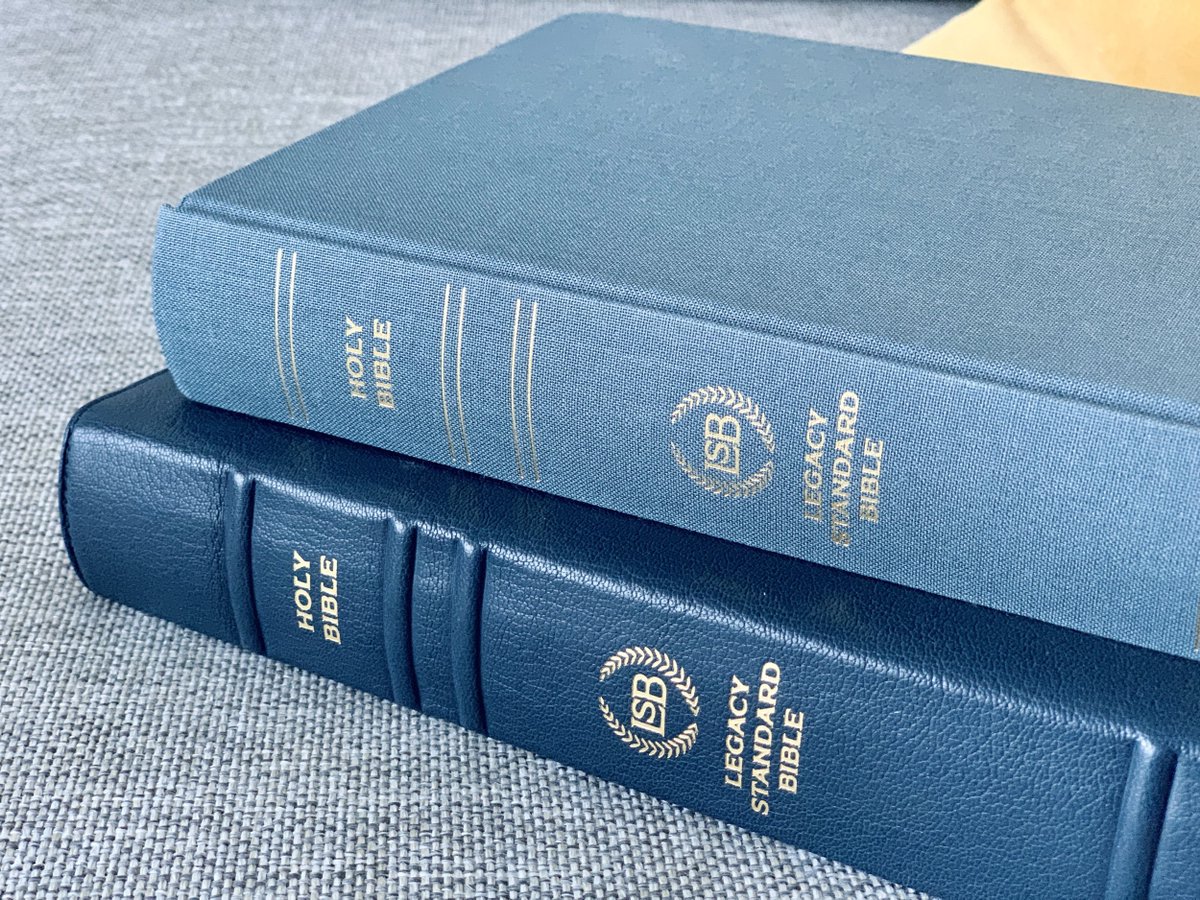
🧵 Who Translated the LSB? And Why? 🎓🏫
The LSB was shaped by scholars from The Master’s Seminary, led by Dr. Abner Chou and a team of Hebrew and Greek professors.
🧑🏫 Most had also worked with Lockman and the NASB
📜 Many were instructors under John MacArthur, whose influence is clear in the translation’s tone and priorities
🔨 The process was completed in under two years, thanks to digital collaboration and the foundation laid by NASB95
It’s a Bible built with precision, pastoral use, and doctrinal integrity at the center.
The LSB was shaped by scholars from The Master’s Seminary, led by Dr. Abner Chou and a team of Hebrew and Greek professors.
🧑🏫 Most had also worked with Lockman and the NASB
📜 Many were instructors under John MacArthur, whose influence is clear in the translation’s tone and priorities
🔨 The process was completed in under two years, thanks to digital collaboration and the foundation laid by NASB95
It’s a Bible built with precision, pastoral use, and doctrinal integrity at the center.
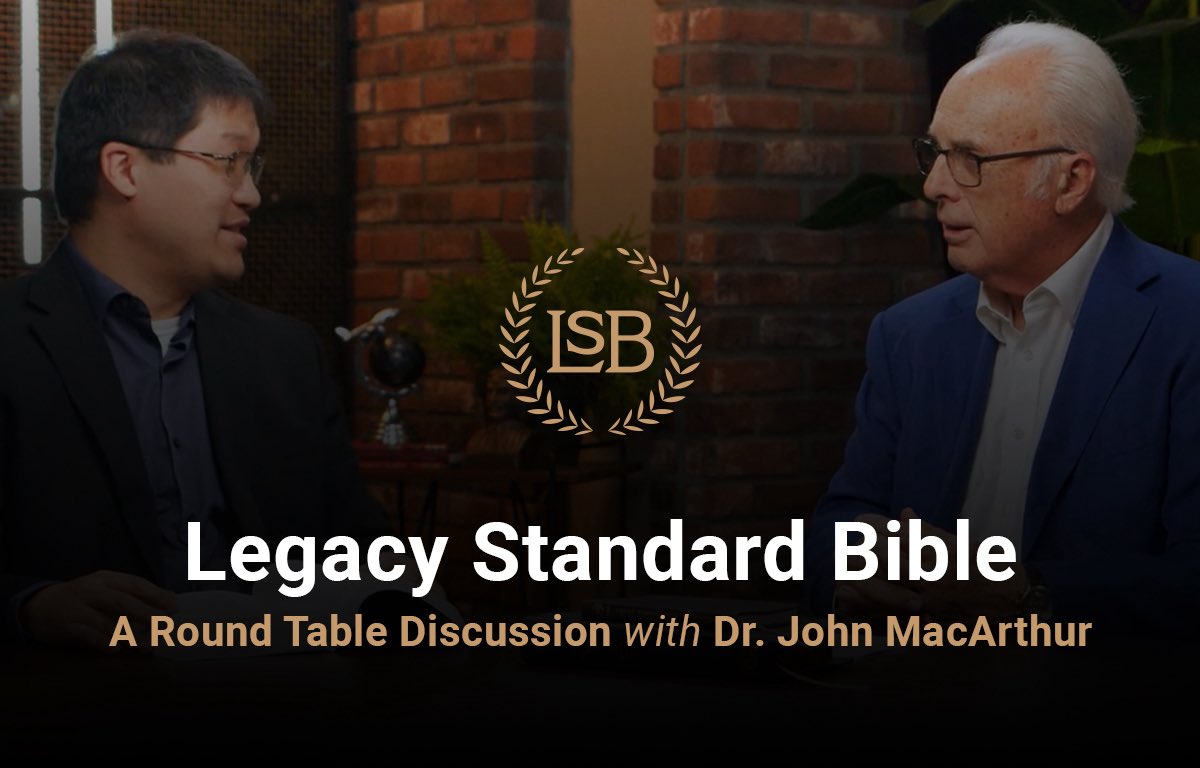
🧵 Reception of the LSB: Applause & Apprehension 👏🏼
📣 Highly endorsed by:
• John MacArthur and Grace to You
• The Shepherds’ Conference
• Conservative seminaries and Reformed circles
• Bible publishers like 316 and Steadfast who produce premium editions
🤔 Concerns from some corners:
• “Too rigid” for public reading compared to the popularity of more dynamic translations like the NLT and the CSB.
• “Too niche” in theological audience
• Limited translation committee breadth
Still, it has quickly become a cult classic among reformed pastors and word-for-word purists. And its rising popularity doesn’t seem to be slowing.
📣 Highly endorsed by:
• John MacArthur and Grace to You
• The Shepherds’ Conference
• Conservative seminaries and Reformed circles
• Bible publishers like 316 and Steadfast who produce premium editions
🤔 Concerns from some corners:
• “Too rigid” for public reading compared to the popularity of more dynamic translations like the NLT and the CSB.
• “Too niche” in theological audience
• Limited translation committee breadth
Still, it has quickly become a cult classic among reformed pastors and word-for-word purists. And its rising popularity doesn’t seem to be slowing.
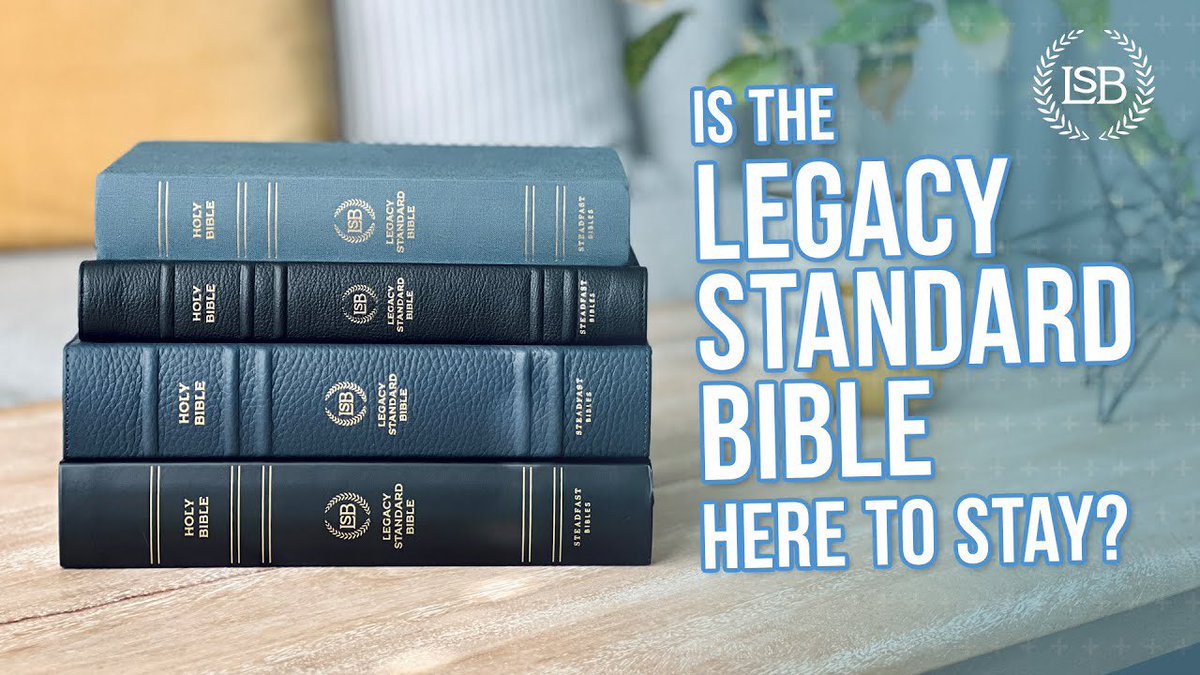
🧵 Legacy Tension: One Family, Two Philosophies 👑
It’s tempting to see the NASB and LSB as competitors. But they’re more like siblings with different callings.
▪️ NASB: A trustworthy formal translation for wide church use
▪️ LSB: A purist’s study tool shaped by theological fidelity
🧬 They share DNA.
🛤 But they’ve chosen different paths.
And both are helping shape the next generation of Bible teachers.
It’s tempting to see the NASB and LSB as competitors. But they’re more like siblings with different callings.
▪️ NASB: A trustworthy formal translation for wide church use
▪️ LSB: A purist’s study tool shaped by theological fidelity
🧬 They share DNA.
🛤 But they’ve chosen different paths.
And both are helping shape the next generation of Bible teachers.
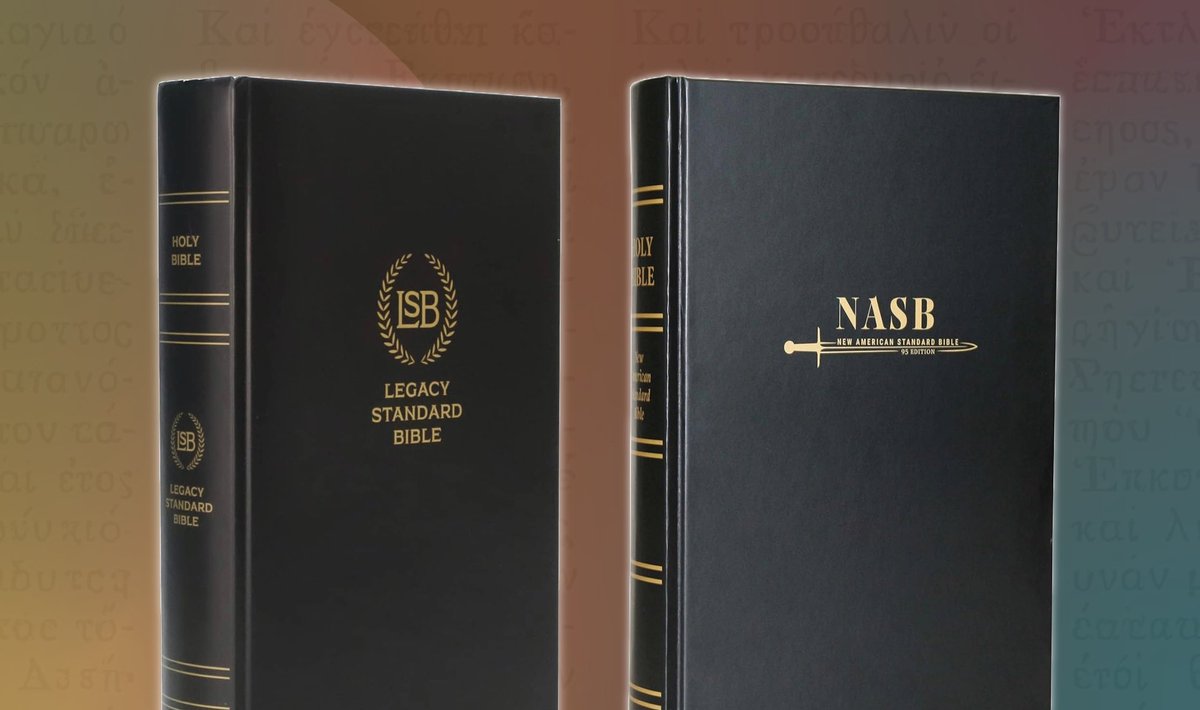
🧵 Final Reflection: Why This Tale Matters
In a world where many translations drift toward dynamic equivalence or cultural neutrality, the NASB and LSB remind us that…
✅ Precision still matters.
✅ Translation is theological.
✅ Word-for-word still serves the church.
They may differ in their future… but their history is forever intertwined.
#NASB #LSB #BibleTranslation #LegacyStandardBible #Bible #church #translation #Marvel#ChristianTwitter #ReformedTwitter #ChurchHistory #Theology #BibleNerd #Greek #Hebrew
In a world where many translations drift toward dynamic equivalence or cultural neutrality, the NASB and LSB remind us that…
✅ Precision still matters.
✅ Translation is theological.
✅ Word-for-word still serves the church.
They may differ in their future… but their history is forever intertwined.
#NASB #LSB #BibleTranslation #LegacyStandardBible #Bible #church #translation #Marvel#ChristianTwitter #ReformedTwitter #ChurchHistory #Theology #BibleNerd #Greek #Hebrew
• • •
Missing some Tweet in this thread? You can try to
force a refresh




